E3 finally gave people their first glimpse at the upcoming Animal Crossing Switch game, titled Animal Crossing: New Horizons. The good news is it looks amazing. The bad news is we can’t get our hands on it until next year.
That’s okay, really. Not only does it mean the dev team gets to be real humans with a work-life balance, but it also means they have the time they need to really make this a stand-out game. And it looks like it’s going to be a stand-out game.
Past titles have played it safe with innovations and doing new things, striking a balance between innovation and safety that sometimes leans a bit too far towards the latter than the former. However, Animal Crossing: New Horizons is making a big step forward for the series, even bigger than New Leaf, and it’s exactly what Animal Crossing needs to keep it fresh and appealing for years to come.
Tried and True
Animal Crossing‘s debut was much like Harvest Moon‘s: it was a completely different kind of game that shattered all traditional notions of gameplay. You were completely free to do whatever you wanted, interact with townsfolk as much or as little as possible, and even live in a dingy 4×4 house for your entire game if you felt like Tom Nook needed to find other sources of revenue.
Yet that innovation and its popularity put the series in a bit of a difficult place. On the one hand, changing things up too much could potentially alienate players who loved the formula first used; on the other, making future entries too similar to previous installments means there’s little incentive to play.
It’s a position Animal Crossing grappled with for a while and not always with successful results. The developers focused more on the multiplayer aspects when making changes for Wild World and City Folk, taking advantage of wireless communication and trying to implement more activities people could enjoy in their friends’ towns.
Changes for single player mode were conservative at best and regressive at worst. WW ditched the major holidays in favor of drawn-out affairs the player couldn’t participate in. However, it did expand villager conversation variety and add new request types, along with new furniture. The world became rounder, but smaller as well.
Other major changes included Celeste’s observatory and the ability to see the sky; the latter might sound mundane, but it adds a special sense of wholeness to the town.
Rather than being a big step forward, it was more like a refinement that tried to recapture the same sense of of the original, but for new audiences. With a goal like that, it’s understandable the team would be careful how much they changed.
Urban Stagnation
City Folk suffered from that approach, only with the Wii as the platform — and by exactly the same approach, to a fault. It’s still a charming game, but apart from having all the special characters in one place and an upgraded aesthetic, there isn’t much new in a positive way.
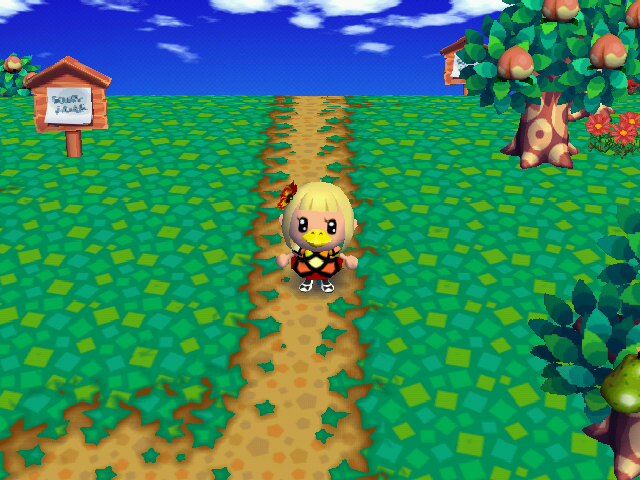
What it did do was severely pare down villager interactions . No longer could you shoot the breeze with your favorite animals or pester them for requests until at last they remembered that video tape they loaned out. Instead, you had no communication options and had to deal with a few responses on repeat for an hour.
The disappearing grass function was a strange innovation as well. Presumably meant to create paths in the town, it resulted in a lot of brown instead and some very thin grass. That might not seem like a big deal, but in a game where the goal is making your town as beautiful, or as whatever, as you want, punishing you for walking around said town doesn’t seem very beneficial. (It’s worth noting the New Horizons trailer shows you making paths specifically, so huzzah; your grass is safe forevermore.)
Overall, none of these negatives are really all that bad, though. The games are still incredibly fun, and it’s easy to sink a ton of time into them. The problem comes when you look at them and realize you could get largely the same experience regardless of which title you chose.
Election Time
New Leaf came and changed all of that with a simple mechanics change. Making the player the mayor initially came off as a gimmick, but it opened up a vital aspect of living in an AC town: making it completely your own.
The Town Ordinances addressed a long-standing problem for fans who didn’t have a school-based schedule by letting stores open earlier or close later. The sheer convenience of making villagers focus on town beautification can’t be overstated either and saved those poor flowers from neglect.
More important was the introduction of Public Works Projects. These special, sometimes wacky, items could be placed anywhere — well, almost — in any combination, and there were a ton to unlock. They also gave players something to work towards other than repaying a home loan, which goes far in providing incentive to keep playing.
It also introduced the start of something new with furniture: customization and new placement options. The series has always been about living your fictional life your way, and New Leaf finally started to make that possible.
It couldn’t really be replicated, though. Many fans and critics lamented City Folk‘s recycling of Wild World. There’s no way Animal Crossing could have directly continued what New Leaf started without repeating that situation, getting stuck by just adding new Public Works Projects, some new furniture and ultimately displeasing consumers.
Communal Island Paradise
So it doesn’t try to. New Horizons makes a clean break from previous Animal Crossing concepts, taking the major, most enjoyable features from the series and doing something new with them.
Moving the game out of a traditional town and into an exotic new location is, like many positive changes in the series’ history, minor on the surface. After all, E3 interviews with the game’s director confirmed most of the town building aspects will remain recognizable. However, it creates an atmosphere of new beginnings (hence the game’s name) that, recognizable progression or not, does make even familiar tasks seem fresh.
The main feature of populating an island greatly contributes to that as well. With New Leaf, the focus was firmly on you. Even though you can determine where your neighbors live, it seems like this is meant to be a more cooperative outing.
You’re all in the same boat, held under Tom Nook’s merciless iron thumb until you pay back your loans and can move out of your tents. Plus, unhappy villagers will leave the island, and it looks like fellow islanders will contribute a lot more to the community’s well-being, if their gardening activities in the trailer are anything to go by.
In other words, not only are you taking part in village/island life per usual; you’re all working together to make that life. It’s basically the fully realized fulfillment of the original Animal Crossing‘s promise all those years ago.
New Horizons borrows from Happy Home Designer and Pocket Camp in what looks like highly effective ways as well. The half-grid placement makes a return from HHD, and it seems as if you can use it to plant tightly knit garden projects, among other things.
But the more exciting feature is placing furniture and items outside.
Your Island, Your Way
This time, your town really can be your own, and you can change it however you want, whenever you want. Public Works Projects are great, but they’re specialty items mostly, like the Jungle Gym, or classic buildings like the Lighthouse. New Horizons lets you create a temporary campsite, as we’ve seen, but assuming there are no limits to what you can place outdoors, the possibilities will be limitless.
One thing I’m most excited about, though, is the item crafting. Pocket Camp introduced us to it in a sense, and New Horizons is taking it to greater heights. Nook Miles rewards are sort of like the Meow Coupons add-on in New Leaf, tasking you to complete certain quests to get rewards. But not having every item or piece of furniture you want available immediately provides an even more compelling reason to keep playing.
You’re trying to earn or find recipes, or items to make something new. Sure, you’re probably going to get stuck trying to find a certain recipe, just like waiting for years on that one piece of furniture Nook never seemed to stock. However, searching them out, finding the ones you want, and making your island community into something unique puts the focus more firmly on players than even New Leaf‘s mayor feature did.
Multiplayer was never Animal Crossing‘s strong point. There just wasn’t enough to do, and the chat functions weren’t quite up to snuff, unless you liked playing right up against your TV thanks to the Wii Speak’s obnoxiously short cord.
Yet it seems like New Horizons will be a step in the right direction for multiplayer as well. Obviously, most of its multiplayer features are still under wraps, but we did get a glimpse at something the series has needed for so long: playing with friends and family at the same time.
Because Animal Crossing‘s multiplayer offerings were so limited, it never made sense you couldn’t at least play with the other people living in your own town and work together. Well, okay, I’m sure it does make sense from a technological standpoint, but it was a huge bummer nonetheless.
—
New Horizons is an appropriate name not just because the game takes place on a new island over the horizon.
This looks like this is the first time Animal Crossing will really give you the reins in your town and finally add greater purpose to all that item and furniture hoarding… er, collecting. It’s a completely new outlook for the series, even while it retains its beloved roots — and it’s hopefully setting a pattern of innovation for future entries as well.

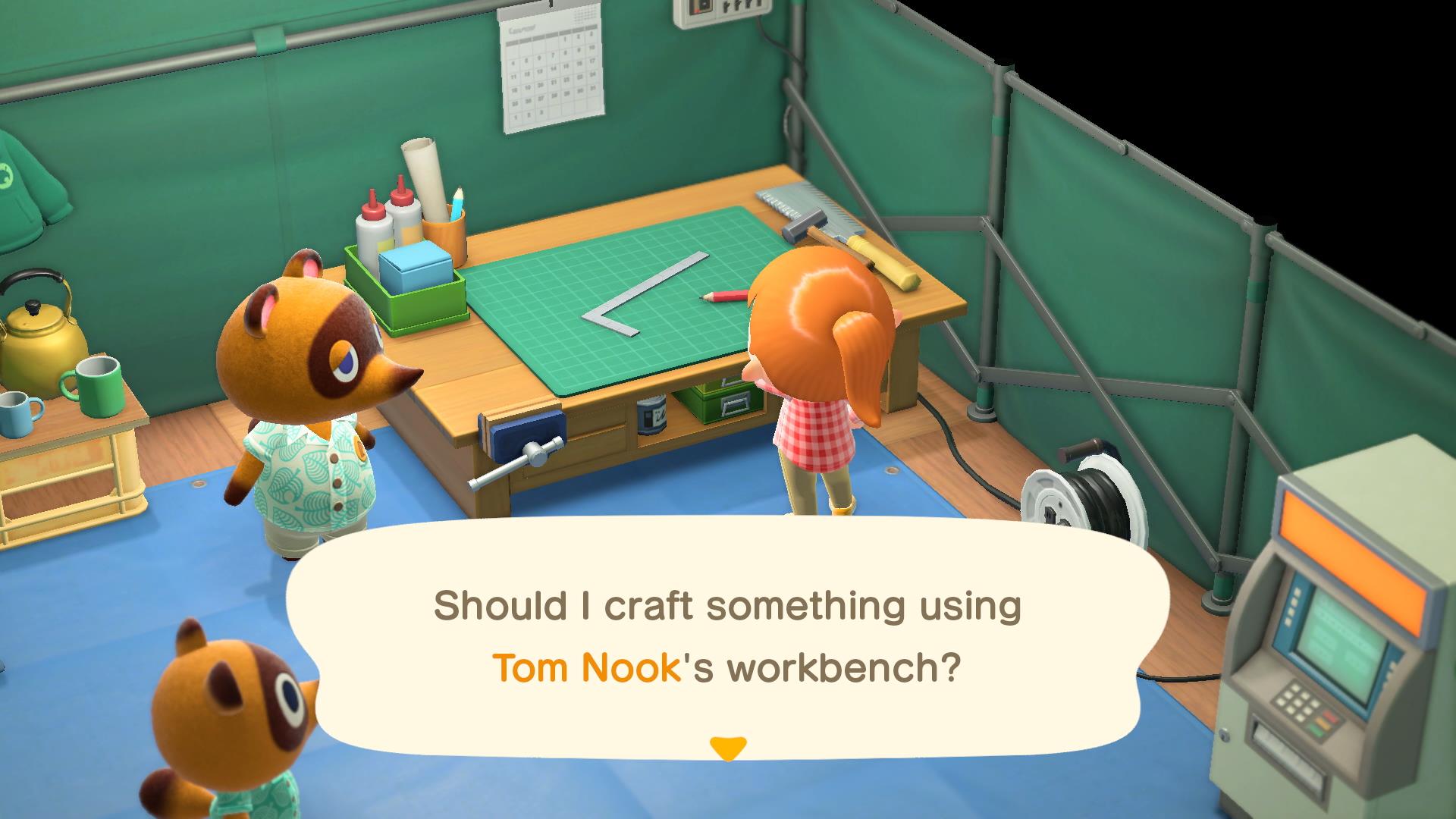
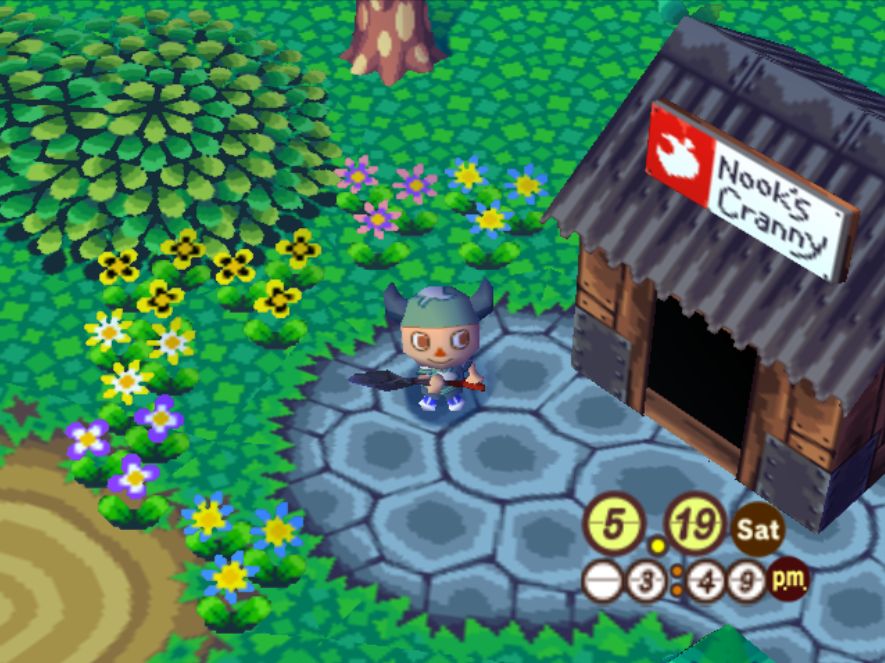
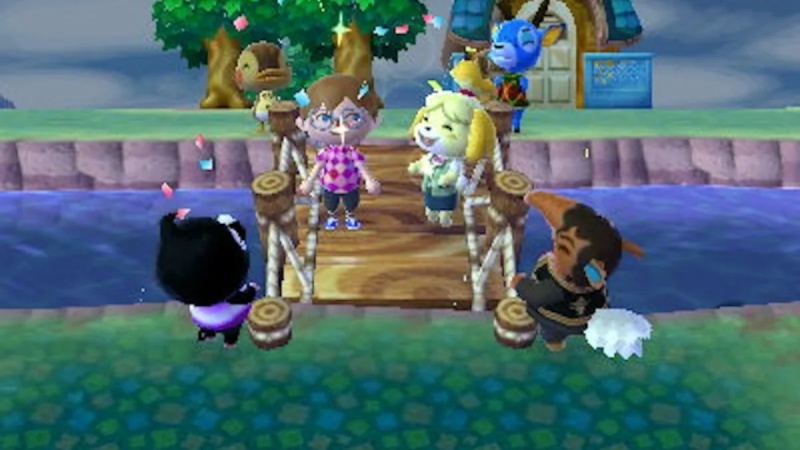

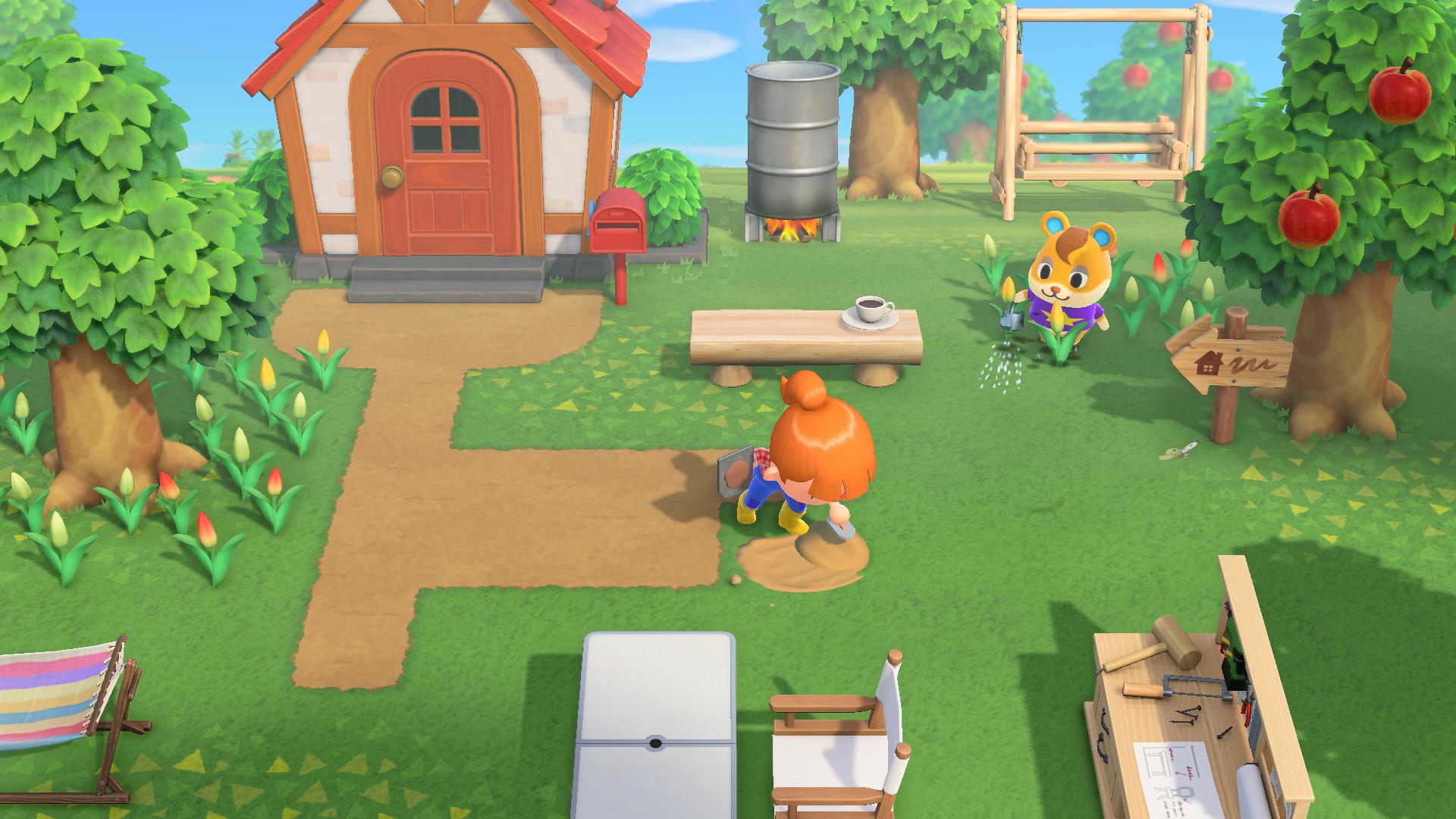
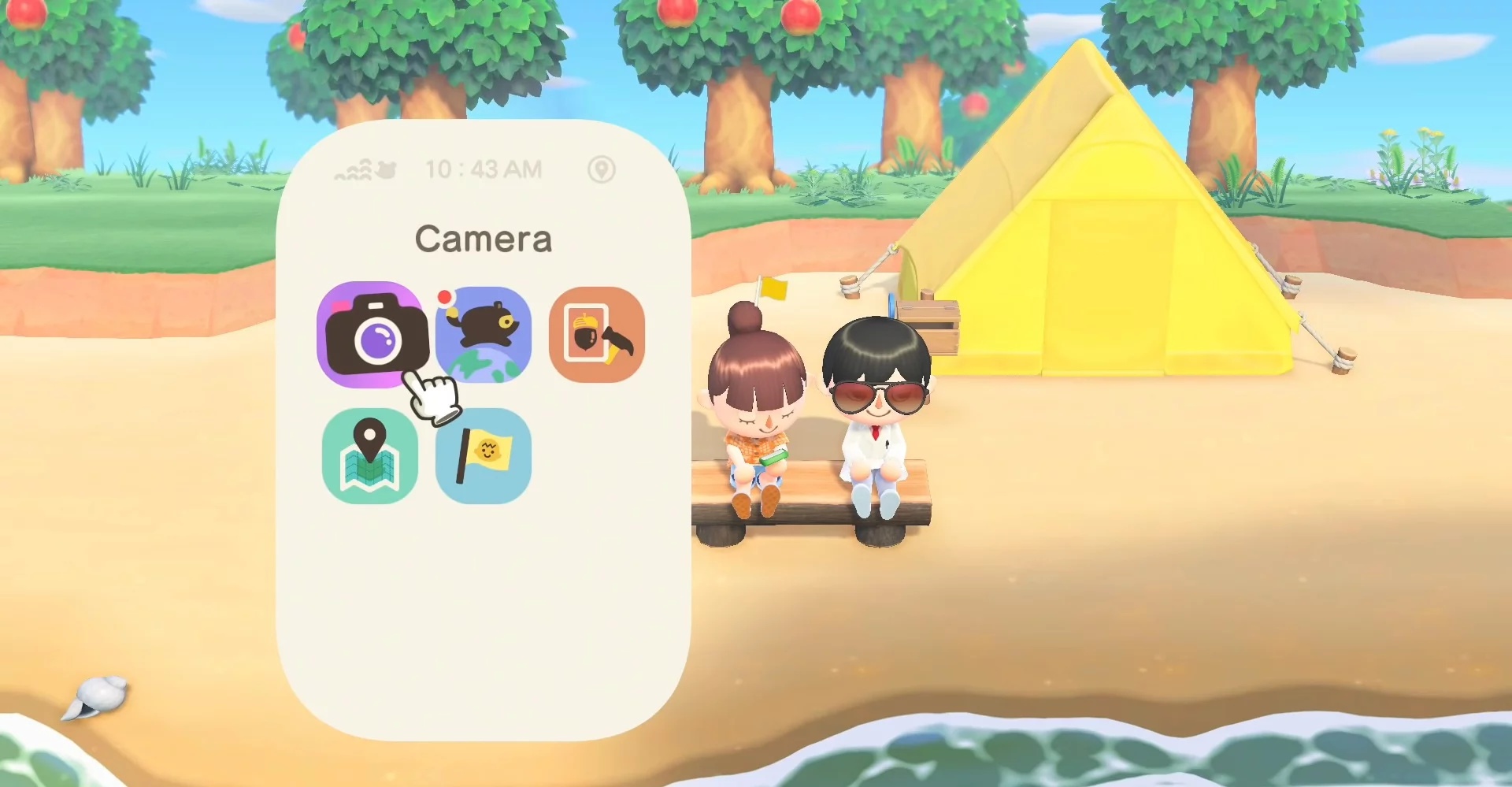





Published: Jun 17, 2019 10:33 am